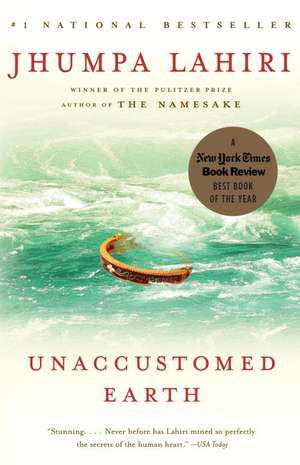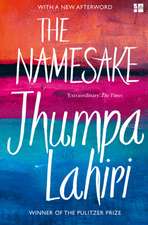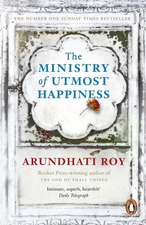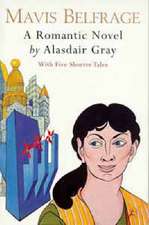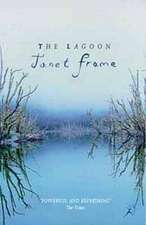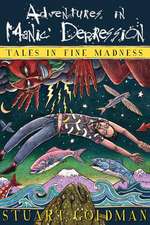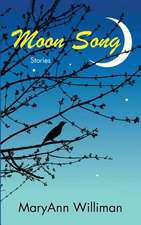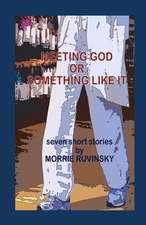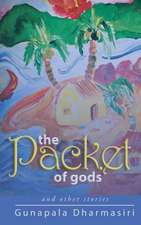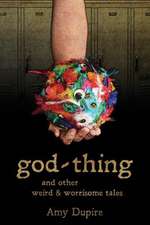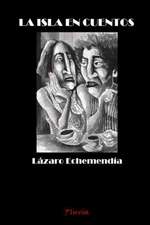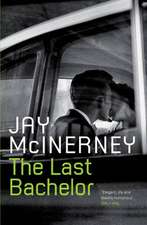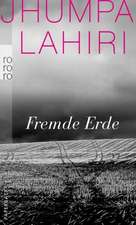Unaccustomed Earth: Vintage Contemporaries
Autor Jhumpa Lahirien Limba Engleză Paperback – 31 mar 2009 – vârsta de la 16 până la 18 ani
Vezi toate premiile Carte premiată
| Toate formatele și edițiile | Preț | Express |
|---|---|---|
| Paperback (2) | 49.01 lei 3-5 săpt. | +25.24 lei 6-12 zile |
| Bloomsbury Publishing – 31 mai 2009 | 49.01 lei 3-5 săpt. | +25.24 lei 6-12 zile |
| Vintage Publishing – 31 mar 2009 | 101.67 lei 3-5 săpt. |
Din seria Vintage Contemporaries
-
 Preț: 109.95 lei
Preț: 109.95 lei -
 Preț: 101.80 lei
Preț: 101.80 lei -
 Preț: 96.52 lei
Preț: 96.52 lei -
 Preț: 107.46 lei
Preț: 107.46 lei -
 Preț: 91.77 lei
Preț: 91.77 lei -
 Preț: 101.88 lei
Preț: 101.88 lei -
 Preț: 111.51 lei
Preț: 111.51 lei -
 Preț: 119.87 lei
Preț: 119.87 lei -
 Preț: 99.75 lei
Preț: 99.75 lei -
 Preț: 97.34 lei
Preț: 97.34 lei -
 Preț: 111.92 lei
Preț: 111.92 lei -
 Preț: 117.87 lei
Preț: 117.87 lei -
 Preț: 95.92 lei
Preț: 95.92 lei -
 Preț: 113.56 lei
Preț: 113.56 lei -
 Preț: 132.88 lei
Preț: 132.88 lei -
 Preț: 108.09 lei
Preț: 108.09 lei -
 Preț: 115.42 lei
Preț: 115.42 lei -
 Preț: 106.04 lei
Preț: 106.04 lei -
 Preț: 96.11 lei
Preț: 96.11 lei -
 Preț: 90.64 lei
Preț: 90.64 lei -
 Preț: 87.84 lei
Preț: 87.84 lei -
 Preț: 99.51 lei
Preț: 99.51 lei -
 Preț: 105.41 lei
Preț: 105.41 lei -
 Preț: 99.30 lei
Preț: 99.30 lei -
 Preț: 120.26 lei
Preț: 120.26 lei -
 Preț: 103.74 lei
Preț: 103.74 lei -
 Preț: 100.98 lei
Preț: 100.98 lei -
 Preț: 100.76 lei
Preț: 100.76 lei -
 Preț: 89.19 lei
Preț: 89.19 lei -
 Preț: 115.94 lei
Preț: 115.94 lei -
 Preț: 101.24 lei
Preț: 101.24 lei -
 Preț: 125.13 lei
Preț: 125.13 lei -
 Preț: 89.50 lei
Preț: 89.50 lei -
 Preț: 100.35 lei
Preț: 100.35 lei -
 Preț: 139.63 lei
Preț: 139.63 lei -
 Preț: 90.35 lei
Preț: 90.35 lei -
 Preț: 106.45 lei
Preț: 106.45 lei -
 Preț: 89.91 lei
Preț: 89.91 lei -
 Preț: 107.92 lei
Preț: 107.92 lei -
 Preț: 77.02 lei
Preț: 77.02 lei -
 Preț: 125.21 lei
Preț: 125.21 lei -
 Preț: 96.93 lei
Preț: 96.93 lei -
 Preț: 112.11 lei
Preț: 112.11 lei -
 Preț: 83.94 lei
Preț: 83.94 lei -
 Preț: 97.15 lei
Preț: 97.15 lei -
 Preț: 105.82 lei
Preț: 105.82 lei -
 Preț: 87.13 lei
Preț: 87.13 lei -
 Preț: 111.76 lei
Preț: 111.76 lei -
 Preț: 129.78 lei
Preț: 129.78 lei -
 Preț: 100.57 lei
Preț: 100.57 lei
Preț: 101.67 lei
Nou
Puncte Express: 153
Preț estimativ în valută:
19.45€ • 20.31$ • 16.10£
19.45€ • 20.31$ • 16.10£
Carte disponibilă
Livrare economică 14-28 martie
Preluare comenzi: 021 569.72.76
Specificații
ISBN-13: 9780307278258
ISBN-10: 0307278255
Pagini: 352
Dimensiuni: 135 x 201 x 20 mm
Greutate: 0.25 kg
Editura: Vintage Publishing
Seria Vintage Contemporaries
ISBN-10: 0307278255
Pagini: 352
Dimensiuni: 135 x 201 x 20 mm
Greutate: 0.25 kg
Editura: Vintage Publishing
Seria Vintage Contemporaries
Notă biografică
Jhumpa Lahiri was born in London and raised in Rhode Island. She is the recipient of a Guggenheim Fellowship and the author of two previous books. Her debut collection of stories, Interpreter of Maladies, was awarded the Pulitzer Prize, the PEN/Hemingway Award, and The New Yorker Debut of the Year. Her novel, The Namesake, was a New York Times Notable Book, a Los Angeles Times Book Prize finalist, and was selected as one of the best books of the year by USA Today and Entertainment Weekly, among other publications. She lives in Brooklyn, New York.
www.jhumpalahiri.net
www.jhumpalahiri.net
Extras
Unaccustomed Earth
After her mother’s death, Ruma’s father retired from the pharmaceutical company where he had worked for many decades and began traveling in Europe, a continent he’d never seen. In the past year he had visited France, Holland, and most recently Italy. They were package tours, traveling in the company of strangers, riding by bus through the countryside, each meal and museum and hotel prearranged. He was gone for two, three, sometimes four weeks at a time. When he was away Ruma did not hear from him. Each time, she kept the printout of his flight information behind a magnet on the door of the refrigerator, and on the days he was scheduled to fly she watched the news, to make sure there hadn’t been a plane crash anywhere in the world.
Occasionally a postcard would arrive in Seattle, where Ruma and Adam and their son Akash lived. The postcards showed the facades of churches, stone fountains, crowded piazzas, terra-cotta rooftops mellowed by late afternoon sun. Nearly fifteen years had passed since Ruma’s only European adventure, a month-long EuroRail holiday she’d taken with two girlfriends after college, with money saved up from her salary as a para- legal. She’d slept in shabby pensions, practicing a frugality that was foreign to her at this stage of her life, buying nothing but variations of the same postcards her father sent now. Her father wrote succinct, impersonal accounts of the things he had seen and done: “Yesterday the Uffizi Gallery. Today a walk to the other side of the Arno. A trip to Siena scheduled tomorrow.” Occasionally there was a sentence about the weather. But there was never a sense of her father’s presence in those places. Ruma was reminded of the telegrams her parents used to send to their relatives long ago, after visiting Calcutta and safely arriving back in Pennsylvania.
The postcards were the first pieces of mail Ruma had received from her father. In her thirty-eight years he’d never had any reason to write to her. It was a one-sided correspondence; his trips were brief enough so that there was no time for Ruma to write back, and besides, he was not in a position to receive mail on his end. Her father’s penmanship was small, precise, slightly feminine; her mother’s had been a jumble of capital and lowercase, as though she’d learned to make only one version of each letter. The cards were addressed to Ruma; her father never included Adam’s name, or mentioned Akash. It was only in his closing that he acknowledged any personal connection between them. “Be happy, love Baba,” he signed them, as if the attainment of happiness were as simple as that.
In August her father would be going away again, to Prague. But first he was coming to spend a week with Ruma and see the house she and Adam had bought on the Eastside of Seattle. They’d moved from Brooklyn in the spring, for Adam’s job. It was her father who suggested the visit, calling Ruma as she was making dinner in her new kitchen, surprising her. After her mother’s death it was Ruma who assumed the duty of speaking to her father every evening, asking how his day had gone. The calls were less frequent now, normally once a week on Sunday afternoons. “You’re always welcome here, Baba,” she’d told her father on the phone. “You know you don’t have to ask.” Her mother would not have asked. “We’re coming to see you in July,” she would have informed Ruma, the plane tickets already in hand. There had been a time in her life when such presumptuousness would have angered Ruma. She missed it now.
Adam would be away that week, on another business trip. He worked for a hedge fund and since the move had yet to spend two consecutive weeks at home. Tagging along with him wasn’t an option. He never went anywhere interesting—usually towns in the Northwest or Canada where there was nothing special for her and Akash to do. In a few months, Adam assured her, the trips would diminish. He hated stranding Ruma with Akash so often, he said, especially now that she was pregnant again. He encouraged her to hire a babysitter, even a live-in if that would be helpful. But Ruma knew no one in Seattle, and the prospect of finding someone to care for her child in a strange place seemed more daunting than looking after him on her own. It was just a matter of getting through the summer—in September, Akash would start at a preschool. Besides, Ruma wasn’t working and couldn’t justify paying for something she now had the freedom to do.
In New York, after Akash was born, she’d negotiated a part-time schedule at her law firm, spending Thursdays and Fridays at home in Park Slope, and this had seemed like the perfect balance. The firm had been tolerant at first, but it had not been so easy, dealing with her mother’s death just as an important case was about to go to trial. She had died on the operating table, of heart failure; anesthesia for routine gallstone surgery had triggered anaphylactic shock.
After the two weeks Ruma received for bereavement, she couldn’t face going back. Overseeing her clients’ futures, preparing their wills and refinancing their mortgages, felt ridiculous to her, and all she wanted was to stay home with Akash, not just Thursdays and Fridays but every day. And then, miraculously, Adam’s new job came through, with a salary generous enough for her to give notice. It was the house that was her work now: leafing through the piles of catalogues that came in the mail, marking them with Post-its, ordering sheets covered with dragons for Akash’s room.
“Perfect,” Adam said, when Ruma told him about her father’s visit. “He’ll be able to help you out while I’m gone.” But Ruma disagreed. It was her mother who would have been the helpful one, taking over the kitchen, singing songs to Akash and teaching him Bengali nursery rhymes, throwing loads of laundry into the machine. Ruma had never spent a week alone with her father. When her parents visited her in Brooklyn, after Akash was born, her father claimed an armchair in the living room, quietly combing through the Times, occasionally tucking a finger under the baby’s chin but behaving as if he were waiting for the time to pass.
Her father lived alone now, made his own meals. She could not picture his surroundings when they spoke on the phone. He’d moved into a one-bedroom condominium in a part of Pennsylvania Ruma did not know well. He had pared down his possessions and sold the house where Ruma and her younger brother Romi had spent their childhood, informing them only after he and the buyer went into contract. It hadn’t made a difference to Romi, who’d been living in New Zealand for the past two years, working on the crew of a German documentary filmmaker. Ruma knew that the house, with the rooms her mother had decorated and the bed in which she liked to sit up doing crossword puzzles and the stove on which she’d cooked, was too big for her father now. Still, the news had been shocking, wiping out her mother’s presence just as the surgeon had.
She knew her father did not need taking care of, and yet this very fact caused her to feel guilty; in India, there would have been no question of his not moving in with her. Her father had never mentioned the possibility, and after her mother’s death it hadn’t been feasible; their old apartment was too small. But in Seattle there were rooms to spare, rooms that stood empty and without purpose.
Ruma feared that her father would become a responsibility, an added demand, continuously present in a way she was no longer used to. It would mean an end to the family she’d created on her own: herself and Adam and Akash, and the second child that would come in January, conceived just before the move. She couldn’t imagine tending to her father as her mother had, serving the meals her mother used to prepare. Still, not offering him a place in her home made her feel worse. It was a dilemma Adam didn’t understand. Whenever she brought up the issue, he pointed out the obvious, that she already had a small child to care for, another on the way. He reminded her that her father was in good health for his age, content where he was. But he didn’t object to the idea of her father living with them. His willingness was meant kindly, generously, an example of why she loved Adam, and yet it worried her. Did it not make a difference to him? She knew he was trying to help, but at the same time she sensed that his patience was wearing thin. By allowing her to leave her job, splurging on a beautiful house, agreeing to having a second baby, Adam was doing everything in his power to make Ruma happy. But nothing was making her happy; recently, in the course of conversation, he’d pointed that out, too.
How freeing it was, these days, to travel alone, with only a single suitcase to check. He had never visited the Pacific Northwest, never appreciated the staggering breadth of his adopted land. He had flown across America only once before, the time his wife booked tickets to Calcutta on Royal Thai Airlines, via Los Angeles, rather than traveling east as they normally did. That journey was endless, four seats, he still remembered, among the smokers at the very back of the plane. None of them had the energy to visit any sights in Bangkok during their layover, sleeping instead in the hotel provided by the airline. His wife, who had been most excited to see the Floating Market, slept even through dinner, for he remembered a meal in the hotel with only Romi and Ruma, in a solarium overlooking a garden, tasting the spiciest food he’d ever had in his life as mosquitoes swarmed angrily behind his children’s faces. No matter how they went, those trips to India were always epic, and he still recalled the anxiety they provoked in him, having to pack so much luggage and getting it all to the airport, keeping documents in order and ferrying his family safely so many thousands of miles. But his wife had lived for these journeys, and until both his parents died, a part of him lived for them, too. And so they’d gone in spite of the expense, in spite of the sadness and shame he felt each time he returned to Calcutta, in spite of the fact that the older his children grew, the less they wanted to go.
From the Hardcover edition.
After her mother’s death, Ruma’s father retired from the pharmaceutical company where he had worked for many decades and began traveling in Europe, a continent he’d never seen. In the past year he had visited France, Holland, and most recently Italy. They were package tours, traveling in the company of strangers, riding by bus through the countryside, each meal and museum and hotel prearranged. He was gone for two, three, sometimes four weeks at a time. When he was away Ruma did not hear from him. Each time, she kept the printout of his flight information behind a magnet on the door of the refrigerator, and on the days he was scheduled to fly she watched the news, to make sure there hadn’t been a plane crash anywhere in the world.
Occasionally a postcard would arrive in Seattle, where Ruma and Adam and their son Akash lived. The postcards showed the facades of churches, stone fountains, crowded piazzas, terra-cotta rooftops mellowed by late afternoon sun. Nearly fifteen years had passed since Ruma’s only European adventure, a month-long EuroRail holiday she’d taken with two girlfriends after college, with money saved up from her salary as a para- legal. She’d slept in shabby pensions, practicing a frugality that was foreign to her at this stage of her life, buying nothing but variations of the same postcards her father sent now. Her father wrote succinct, impersonal accounts of the things he had seen and done: “Yesterday the Uffizi Gallery. Today a walk to the other side of the Arno. A trip to Siena scheduled tomorrow.” Occasionally there was a sentence about the weather. But there was never a sense of her father’s presence in those places. Ruma was reminded of the telegrams her parents used to send to their relatives long ago, after visiting Calcutta and safely arriving back in Pennsylvania.
The postcards were the first pieces of mail Ruma had received from her father. In her thirty-eight years he’d never had any reason to write to her. It was a one-sided correspondence; his trips were brief enough so that there was no time for Ruma to write back, and besides, he was not in a position to receive mail on his end. Her father’s penmanship was small, precise, slightly feminine; her mother’s had been a jumble of capital and lowercase, as though she’d learned to make only one version of each letter. The cards were addressed to Ruma; her father never included Adam’s name, or mentioned Akash. It was only in his closing that he acknowledged any personal connection between them. “Be happy, love Baba,” he signed them, as if the attainment of happiness were as simple as that.
In August her father would be going away again, to Prague. But first he was coming to spend a week with Ruma and see the house she and Adam had bought on the Eastside of Seattle. They’d moved from Brooklyn in the spring, for Adam’s job. It was her father who suggested the visit, calling Ruma as she was making dinner in her new kitchen, surprising her. After her mother’s death it was Ruma who assumed the duty of speaking to her father every evening, asking how his day had gone. The calls were less frequent now, normally once a week on Sunday afternoons. “You’re always welcome here, Baba,” she’d told her father on the phone. “You know you don’t have to ask.” Her mother would not have asked. “We’re coming to see you in July,” she would have informed Ruma, the plane tickets already in hand. There had been a time in her life when such presumptuousness would have angered Ruma. She missed it now.
Adam would be away that week, on another business trip. He worked for a hedge fund and since the move had yet to spend two consecutive weeks at home. Tagging along with him wasn’t an option. He never went anywhere interesting—usually towns in the Northwest or Canada where there was nothing special for her and Akash to do. In a few months, Adam assured her, the trips would diminish. He hated stranding Ruma with Akash so often, he said, especially now that she was pregnant again. He encouraged her to hire a babysitter, even a live-in if that would be helpful. But Ruma knew no one in Seattle, and the prospect of finding someone to care for her child in a strange place seemed more daunting than looking after him on her own. It was just a matter of getting through the summer—in September, Akash would start at a preschool. Besides, Ruma wasn’t working and couldn’t justify paying for something she now had the freedom to do.
In New York, after Akash was born, she’d negotiated a part-time schedule at her law firm, spending Thursdays and Fridays at home in Park Slope, and this had seemed like the perfect balance. The firm had been tolerant at first, but it had not been so easy, dealing with her mother’s death just as an important case was about to go to trial. She had died on the operating table, of heart failure; anesthesia for routine gallstone surgery had triggered anaphylactic shock.
After the two weeks Ruma received for bereavement, she couldn’t face going back. Overseeing her clients’ futures, preparing their wills and refinancing their mortgages, felt ridiculous to her, and all she wanted was to stay home with Akash, not just Thursdays and Fridays but every day. And then, miraculously, Adam’s new job came through, with a salary generous enough for her to give notice. It was the house that was her work now: leafing through the piles of catalogues that came in the mail, marking them with Post-its, ordering sheets covered with dragons for Akash’s room.
“Perfect,” Adam said, when Ruma told him about her father’s visit. “He’ll be able to help you out while I’m gone.” But Ruma disagreed. It was her mother who would have been the helpful one, taking over the kitchen, singing songs to Akash and teaching him Bengali nursery rhymes, throwing loads of laundry into the machine. Ruma had never spent a week alone with her father. When her parents visited her in Brooklyn, after Akash was born, her father claimed an armchair in the living room, quietly combing through the Times, occasionally tucking a finger under the baby’s chin but behaving as if he were waiting for the time to pass.
Her father lived alone now, made his own meals. She could not picture his surroundings when they spoke on the phone. He’d moved into a one-bedroom condominium in a part of Pennsylvania Ruma did not know well. He had pared down his possessions and sold the house where Ruma and her younger brother Romi had spent their childhood, informing them only after he and the buyer went into contract. It hadn’t made a difference to Romi, who’d been living in New Zealand for the past two years, working on the crew of a German documentary filmmaker. Ruma knew that the house, with the rooms her mother had decorated and the bed in which she liked to sit up doing crossword puzzles and the stove on which she’d cooked, was too big for her father now. Still, the news had been shocking, wiping out her mother’s presence just as the surgeon had.
She knew her father did not need taking care of, and yet this very fact caused her to feel guilty; in India, there would have been no question of his not moving in with her. Her father had never mentioned the possibility, and after her mother’s death it hadn’t been feasible; their old apartment was too small. But in Seattle there were rooms to spare, rooms that stood empty and without purpose.
Ruma feared that her father would become a responsibility, an added demand, continuously present in a way she was no longer used to. It would mean an end to the family she’d created on her own: herself and Adam and Akash, and the second child that would come in January, conceived just before the move. She couldn’t imagine tending to her father as her mother had, serving the meals her mother used to prepare. Still, not offering him a place in her home made her feel worse. It was a dilemma Adam didn’t understand. Whenever she brought up the issue, he pointed out the obvious, that she already had a small child to care for, another on the way. He reminded her that her father was in good health for his age, content where he was. But he didn’t object to the idea of her father living with them. His willingness was meant kindly, generously, an example of why she loved Adam, and yet it worried her. Did it not make a difference to him? She knew he was trying to help, but at the same time she sensed that his patience was wearing thin. By allowing her to leave her job, splurging on a beautiful house, agreeing to having a second baby, Adam was doing everything in his power to make Ruma happy. But nothing was making her happy; recently, in the course of conversation, he’d pointed that out, too.
How freeing it was, these days, to travel alone, with only a single suitcase to check. He had never visited the Pacific Northwest, never appreciated the staggering breadth of his adopted land. He had flown across America only once before, the time his wife booked tickets to Calcutta on Royal Thai Airlines, via Los Angeles, rather than traveling east as they normally did. That journey was endless, four seats, he still remembered, among the smokers at the very back of the plane. None of them had the energy to visit any sights in Bangkok during their layover, sleeping instead in the hotel provided by the airline. His wife, who had been most excited to see the Floating Market, slept even through dinner, for he remembered a meal in the hotel with only Romi and Ruma, in a solarium overlooking a garden, tasting the spiciest food he’d ever had in his life as mosquitoes swarmed angrily behind his children’s faces. No matter how they went, those trips to India were always epic, and he still recalled the anxiety they provoked in him, having to pack so much luggage and getting it all to the airport, keeping documents in order and ferrying his family safely so many thousands of miles. But his wife had lived for these journeys, and until both his parents died, a part of him lived for them, too. And so they’d gone in spite of the expense, in spite of the sadness and shame he felt each time he returned to Calcutta, in spite of the fact that the older his children grew, the less they wanted to go.
From the Hardcover edition.
Recenzii
“Glorious.... Showcases a considerable talent in full bloom.” —San Francisco Chronicle
“Stunning.... Gorgeous.... Never before has Lahiri mined so perfectly the secrets of the human heart.” —USA Today
“A testament to Lahiri's emotional wisdom and consummate artistry as a writer.” —The New York Times
“Lucid and revelatory.... Both universal and deeply felt.” —The Washington Post Book World
“Graceful and devastating.... A gorgeous, meticulous and inviting work ... of an artist wise in enigmas and human mystery.” —The Miami Herald
“Powerful.... Profound.... Haunting.” —Los Angeles Times Book Review
“Shimmering.... Lahiri's fiction delves deep into the universal theme of isolation.” —Fresh Air
“Splendid.... Lahiri handles her characters without leaving any fingerprints.” —The New York Times Book Review
“Beautifully rendered.... Reading [Lahiri's] stories is hypnotizing-like falling into a dream.” —People (four stars)
“Lahiri steps back from the action, gets out of the way, so the people and things in her stories can exist the way real things do: richly, ambiguously, without explanation.” —Time
“Powerful.... Lahiri is a genius of the miniature stroke and the great arc.” —Elizabeth Taylor, Chicago Tribune
“Beautifully crafted.... The remarkable poignancy Lahiri achieves in her work ... is the result of tying [her] examination of exile to other, more universal moments of essential sadness in our lives: the death of a parent, the end of a love affair, the ravages of alcoholism on a family.” —The Boston Globe
“Shimmering.... The literary prize committees should once again take note.... To read Unaccustomed Earth and only take away an experience of cultural tourism would be akin to reading Dante only to retain how medieval Italians slurped their spaghetti. Lahiri’s fiction delves deep into the universal theme of isolation.... Lahiri is a lush writer bringing to life worlds through a pile-up of detail. But somehow all that richness electrifyingly evokes the void.... It’s customary when reviewing short story collections to adopt a ‘one from column A, two from column B’ kind of structureߝyou know, the title story always gets a ritual nod, followed by a run-down of which stories are the strongest, which have just been included for filler. But another stereotype-confounding aspect of Lahiri’s writing is that there aren’t any weak stories here: every one seems like the best, the most vivid, until you read the next one.... Lahiri ingeniously reworks the situation of characters subsisting at point zero, of being stripped down like Lear on the heath. Unaccustomed Earth certainly makes a contribution to the literature of immigration, but it also takes its rightful place with modernist tales from whatever culture in which characters find themselves doomed to try and fail to only connect.” —Maureen Corrigan, “Fresh Air”
“Peripatetic, sweeping storiesߝLahiri’s best yetߝwhich move from Boston to Bombay and back again to evoke intricate topologies of emotion and characters who often feel more at home abroad. [They] possess the gravitational pull of short novels.... The final three stories, a trilogy in which an educated, thoroughly American girl’s choice of an arranged marriage over romantic love (a decision Lahiri deftly makes relatable) has cataclysmic repercussions, form the rhapsodic culmination to the collection. Lahiri, a master storytellerߝwho, along with Alice Munro, has arguably done more to reinvigorate the once-moribund form than any other contemporary English-language writerߝcomes full circle with this book, imbued as it is with a sense of passage, of life and death and rebirth.” —Megan O’Grady, Vogue
“Five of five stars.... Commanding and seamless.... There might not be a better book of fiction by an American writer published this year.... Extraordinary ... The long, absorbing ‘Unaccustomed Earth,’ the title story [deals with] familiar themes [for Lahiri]: the alienation that Indian immigrant parents feel toward their American-reared children and the guilt those children feel as they assimilate into the melting pot of the U.S. But as she proved in Interpreter of Maladies and The Namesake, Lahiri writes so compellingly about these conflicts and pays such careful attention to the most emotionally telling of details that each story feels freshly minted.... The range of human experiences [Lahiri] chronicles is epic, again and again. [‘Hell-Heaven’ is] a universal story of yearning and unrequited desire, rooted so specifically and powerfully in a sense of time and place that we feel as if we are living right alongside the characters ... For all that’s comfortingly familiar about Unaccustomed Earth, though, one of its chief pleasures is that it shows Lahiri stretching in entirely new directions. In ‘A Choice of Accommodations,’ for instance, the author serves up a slice of Updike-ian Americana while managing to put her own distinct twist on the proceedings.... ‘Only Goodness,’ arguably the strongest story in the collection, gets under your skin like nothing Lahiri has written before. The first five stories are varied and accomplished [and the final three] are gripping and affecting ... Whereas so many story collections feel like uneven grab-bags, Unaccustomed Earth seems to have poured forth from the author’s pen in one swoop, and it eloquently circles back over the same sets of themes and motifs without growing tired. It’s like a symphony in eight movements.” —Christopher Kelly, Fort Worth Star-Telegram
“Four stars. Jhumpa Lahiri continues to probe culture and generational clashes among Bengali brethren living in the U.S. (and occasionally abroad) in her penetrating second collection.... No character exists in isolation in Lahiri’s new work, which is deeply aware of the power of blood ties; her book is a congregation of siblings, parents, spouses. Neither an exultation of nuclear families nor a cynical catalog of their dysfunction, Unaccustomed Earth is something braver and more difficult: a compassionate inspection of the fissures and disappointments of deep attachment ... trenchant. Whether they are middle-aged mothers who tire of years of keeping house in small Northeastern towns, thousands of miles away from Calcutta, or sisters who finally relinquish responsibility for alcoholic younger brothers, these characters are somehow redeemed by their courage to face the day, ‘as typical and terrifying as any other." —Melissa Anderson, Time Out New York
“[Lahiri’s] stories are quiet, deliberate, setting one foot down in front of the other, then exploding with a secret, an encounter, a clash. Quietly, then, they lay back down, leaving the reader astir in their unnerving calm. Lahiri’s [work], however, is rife with characters that are larger than the Bengali immigration experience, experiences larger than mere discontent. She’s an artist of the family portrait. The eight stories in Unaccustomed Earth have an emotional wisdom weightier than in Lahiri’s first collection, Interpreter of Maladies, which won the Pulitzer Prize, and they contain a more nuanced tightness than her neo-Chekhovian first novel, The Namesake.... Her new stories are better, strongerߝevidence of a writer pushing herself to a deeper level.... Old-fashioned in her approach, contemporary in her subject matter, Lahiri anchors these stories in character.... In [‘Unaccustomed Earth’ and ‘Only Goodness’], new life brings hope to broken families, and mothers awash in tears must carry on when the baby cries. [Lahiri] captures these moments with clarity and grace, a tangible knowledge of how souls twist in the wind.... The ‘Hema and Kaushik’ stories, a trilogy that closes the book, prove the most haunting. The characters, Lahiri has said in interviews, lived with her for a decade, and their presence feels imprinted in these pages as if by letterpress.... In these three stories, Lahiri experiments with point of view. Forsaking her usual third-person narrator, she goes for the intimate whispers of first person. If one felt like a fortunate fly on the wall in previous stories, now the effect is to sit in between the beats of her characters’ heartaches.” —Leonora Todaro, The Village Voice
“Lahiri writes largely about the American-born children of middle-class Indian immigrants, but in doing so, she also nails the mores of affluent, educated Americans, both Indian and non-Indian. [‘Only Goodness’] presents a very believable picture of a relationship’s slow decline in a very recognizable urban setting. And that’s precisely what Lahiri does well.... Lahiri is a literary heir of Anthony Trollope in her ability to capture the way we live now. And that’s a testament to the way society has changed ... but also to Lahiri’s skill at evoking this world empathetically and unironically.” —Adelle Waldman, The New Republic
“Eight stories [that] are longer than those in [Lahiri’s] previous collection but just as absorbing and beautifully written.... Wonderful prose and masterful delineation of character. [Unaccustomed Earth] fulfills every expectation of her mastery of the prose medium.... Unaccustomed Earth is [Lahiri’s] customary style at its very best.” —Nancy Schapiro, St. Louis Post-Dispatch
“Beautifully crafted ... Lahiri navigates the interlocking themes of identity and assimilation, familial duty and grief ... employ[ing] quiet language to reveal debilitating truths.... Unaccustomed Earth showcases some of Lahiri’s best work and reinforces her claim to our literary high ground." —Tamara Titus, The Charlotte Observer
“‘Eagerly awaited’ is a phrase too often used to hype a new work. But in the case of Lahiri, it’s accurate. Lahiri again delicately writes of the Bengali immigrant experience, perfectly communicating the tension between the ideals of transplanted parents and the ones of their American children, in the short story format that made her so popular in the first place.” —Billy Heller, The New York Post
“Poignant ... precisely rendered, elegiac.... Lahiri details with quiet precision the divide between American-born children and their Bengali parents.” —Yvonne Zipp, The Christian Science Monitor
“Four stars. Beautifully rendered.... Unaccustomed Earth explores the dilemmas faced by Bengali immigrants in the west, yet its appeal is universal. Lahiri takes the reader from Massachusetts to Italy to London to Thailand as her characters discover love, freedom and the heartbreak of leaving one family to create another. In the standout title story, a lawyer on maternity leave struggles with her mother’s death and her own ambivalence toward motherhood. ‘Only Goodness,’ about the complexity of loving an addict, contains a darkness that proves the author capable of leaving her usual realm, quiet domestic tragedy, for rougher waters. Reading her stories is hypnotizingߝlike falling into a dream where colors are brighter, smells sharper and time moves more slowly than in real life.” —Danielle Trussoni, People
“Lovely ... elegant, unsettling.... Unaccustomed Earth is full of lost old-world parents and the modern marriages that can’t quite replace them.... The saga of Hema and Kaushik is ... a masterfully written and powerful drama. Though Lahiri’s characters construct sophisticated new identities for themselves, they are still irresistibly drawn to the reassuring traditions they’ve abandoned. The past exerts a wicked pull, even (maybe especially) when you’re all grown up and least expecting it.” —Jennifer Reese, Entertainment Weekly
“[Jhumpa Lahiri is] a succinct realist writer in an era of attention-getting maneuvers. Stylistically, [there’s] no genre bending, no comics-inflected supernaturalism, no world-historical ventriloquism, no 9/11 flip books. Just couples and families joining, coming apart, dealing with immigration, death, and estrangement. This is true of her debut short-story collection, Interpreter of Maladies (which won a Pulitzer in 2000); her novel, The Namesake (a best seller turned Mira Nair film); and her new book, Unaccustomed Earthߝeight mature stories each stretching almost to novella length.... What makes Lahiri’s corner of the world seem so important, to her and to us? Maybe, for all the polish, it’s the lack of ironic layering that tends to distance us from the tragedies chronicled in most ‘literary’ fiction. Lahiri isn’t afraid to make people cry.... Lahiri writes often of illnesses, failing marriages, and just plain loneliness, but thanks to her economy and mastery of detail, it never quite crosses over into the sentimental. Nor does it rely on the melodramatic twists that are staples of more middlebrow writers. ” —Boris Kachka, New York Magazine
“Jhumpa Lahiri already has carved out a distinctive literary niche ... her tales of Indians encountering contemporary American lives have resonated with a wide swath of readers. Unaccustomed Earth will only burnish that estimable reputation. It’s an emotionally astute, character-driven assortment of stories that carry forward and deepen the themes she’s explored in her previous works.... Her prose style is graceful, elegant, understated. Like Alice Munro, Lahiri is adept at handling chronology, ranging backward and forward in time, compressing lifetimes into a single artfully crafted paragraph. Relish this gorgeous collection.” —Harvey Freedenberg, Bookpage
“Emotionally intricate and exquisitely crafted, Unaccustomed Earth’s descriptions of love and conflict are rendered through the lives of people whose traditions include arranged marriages and cultural cohesion. Much of the older generation seeks to honor tradition, and the younger seeks to explore personal choices.... One of Lahiri’s great strengths is to concentrate myriad conflicts into individual scenes where cultural, romantic and family betrayal coalesce. Like Jane Austen, Lahiri is brilliant at describing ambivalent emotions.... Stories of star-crossed lovers are not new, but when handled by Lahiri in the book’s second section, ‘Hema and Kaushik’ becomes a nearly perfect example of the linked story form. The stories are so richly detailed in their accounting of time, and so socially layered, that the meeting feels convincingly like destiny.... Masterful.” —John Holman, Paste
“Ferociously good ... acutely observed.... In exquisitely attuned prose, Lahiri notes the clash between generations.... She is emotionally precise about her characters and the way the world appears to them, especially in the superb ‘Hema and Kaushik’ [trilogy], which achingly reveals how two very unlikely families end up under one suburban roof, and how destiny entwines them forever. These are unforgettable people, their stories unforgettably well told.” —Elaina Richardson, O, The Oprah Magazine
“A great book ... to move you. Whether American or Bengali by birth, Lahiri’s protagonists valiantly walk a tightrope between personal choice and family expectation. Faltering or triumphant, each tugs at the heart.” —Good Housekeeping
“[Lahiri] explores with her modulated prose a full range of relationships among her subjects. So thoroughly and judiciously does she use detail that she easily presents entire lives with each story. These are tales of careful observation and adjustment.... Most moving is the final trio of intertwined stories about loss and connection.” —The Atlantic
“Dazzling.... [Lahiri’s] comparisons with literary masters such as Alice Munro are well-earned. In these eight exquisitely detailed stories, Lahiri is less interested in painful family conflicts than in the private moments of sadness that come in their aftermath. In the outstanding title story, a woman struggles to reconnect with her father and to accept how he has changed since her mother’s death. In ‘A Choice of Accommodations,’ Lahiri writes refreshingly about an aging body.... Subtle and wise, Lahiri captures a universal yearning.” —Carmela Ciuraru, More
“Lahiri’s finely drawn prose makes [Unaccustomed Earth] feel less like reading and more like peering into the most raw, intimate moments of people’s lives.” —Marie Claire
“Lahiri has boasted an enviable literary career since nabbing the Pulitzer for Interpreter of Maladies. Her new story collection, Unaccustomed Earth, should have no problem upholding her reputation.... Lahiri delves into the souls of indelible characters struggling with displacement, guilt, and fear as they try to find a balance between the solace and suffocation of tradition and the terror and excitement of the future into which they’re being thrust.... [Unaccustomed Earth] further establishes her as an important American writer.” —Kera Bolonik, Bookforum
“Lahiri’s enormous gifts as a storyteller are on full display in this collection: the gorgeous, effortless prose; the characters haunted by regret, isolation, loss, and tragedies big and small; and most of all, a quiet, emerging sense of humanity.”
—Khaled Hosseini, author of A Thousand Splendid Suns and The Kite Runner
“Pulitzer Prize winning Lahiri returns with her highly anticipated second collection exploring the inevitable tension brought on by family life. The title story takes on a young mother nervously hosting her widowed father, who is visiting between trips he takes with a lover he has kept secret from his family. What could have easily been a melodramatic soap opera is instead a meticulously crafted piece that accurately depicts the intricacies of the father-daughter relationship. In a departure from Interpreter of Maladies, Lahiri divides this book into two parts, devoting the second half to “Hema and Kaushik,” three stories that together tell the story of a young man and woman who meet as children and reunite years later halfway around the world. The author’s ability to flesh out completely even minor characters in every story, and especially in this trio of stories, is what will keep readers invested in the work until its heartbreaking conclusion. Recommended for all public libraries.” —Sybil Kollappallil, Library Journal
“The tight arc of a story is perfect for Lahiri’s keen sense of life’s abrupt and powerful changes, and her avid eye for telling details. This collection’s five powerful stories and haunting triptych of tales about the fates of two Bengali families in America map the perplexing hidden forces that pull families asunder and undermine marriages. 'Unaccustomed Earth’ the title story, dramatizes the divide between immigrant parents and their American-raised children, and is the first of several scathing inquiries into the lack of deep-down understanding and trust in a marriage between a Bengali and a non-Bengali. An inspired miniaturist, Lahiri creates a lexicon of loaded images. A hole burned in a dressy skirt suggests vulnerability and the need to accept imperfection. Van Eyck’s famous painting, The Arnolfini Marriage, is a template for a tale contrasting marital expectations with the reality of familial relationships. A collapsed balloon is emblematic of failure. A lost bangle is shorthand for disaster. Lahiri’s emotionally and culturally astute short stories (ideal for people with limited time for pleasure reading and a hunger for serious literature) are surprising, aesthetically marvelous, and shaped by a sure and provocative sense of inevitability. Lahiri writes insightfully about childhood, while the romantic infatuations and obstacles to true love will captivate teens.” —Donna Seaman, Booklist (starred)
“Stunning.... The gulf that separates expatriate Bengali parents from their American—raised childrenߝand that separates the children from Indiaߝremains Lahiri’s subject for this follow-up to Interpreter of Maladies and The Namesake. In the title story, Brooklyn-to-Seattle transplant Ruma frets about a presumed obligation to bring her widower father into her home, a stressful decision taken out of her hands by his unexpected independence. The alcoholism of Rahul is described by his elder sister, Sudha; her disappointment and bewilderment pack a particularly powerful punch. And in the loosely linked trio of stories closing the collection, the lives of Hema and Kaushik intersect over the years.... An inchoate grief for mothers lost at different stages of life enters many tales and, as the book progresses, takes on enormous resonance. Lahiri’s stories of exile, identity, disappointment and maturation evince a spare and subtle mastery that has few contemporary equals.” —Publishers Weekly (starred) (January 28, 2008)
“Lahiri extends her mastery of the short-story in a collection that has a novel’s thematic cohesion, narrative momentum and depth of character.... Some of her most compelling fiction to date. Each of these eight stories ... concerns the assimilation of Bengali characters into American society. The parents feel a tension between the culture they’ve left behind and the adopted homeland where they always feel at least a little foreign. Their offspring, who are generally the protagonists of these stories, are typically more Americanized, adopting a value system that would scandalize their parents, who are usually oblivious to the college lives their sons and daughters lead.... The stunning title story presents something of a role reversal, as a Bengali daughter and her American husband must come to terms with the secrets harbored by her father. The story expresses as much about love, loss and the family ties that stretch across continents and generations through what it doesn’t say, and through what is left unaddressed by the characters.... An eye for detail, ear for dialogue and command of family dynamics distinguish this uncommonly rich collection.” —Kirkus Reviews (starred) (February 1, 2008)
“Stunning.... Gorgeous.... Never before has Lahiri mined so perfectly the secrets of the human heart.” —USA Today
“A testament to Lahiri's emotional wisdom and consummate artistry as a writer.” —The New York Times
“Lucid and revelatory.... Both universal and deeply felt.” —The Washington Post Book World
“Graceful and devastating.... A gorgeous, meticulous and inviting work ... of an artist wise in enigmas and human mystery.” —The Miami Herald
“Powerful.... Profound.... Haunting.” —Los Angeles Times Book Review
“Shimmering.... Lahiri's fiction delves deep into the universal theme of isolation.” —Fresh Air
“Splendid.... Lahiri handles her characters without leaving any fingerprints.” —The New York Times Book Review
“Beautifully rendered.... Reading [Lahiri's] stories is hypnotizing-like falling into a dream.” —People (four stars)
“Lahiri steps back from the action, gets out of the way, so the people and things in her stories can exist the way real things do: richly, ambiguously, without explanation.” —Time
“Powerful.... Lahiri is a genius of the miniature stroke and the great arc.” —Elizabeth Taylor, Chicago Tribune
“Beautifully crafted.... The remarkable poignancy Lahiri achieves in her work ... is the result of tying [her] examination of exile to other, more universal moments of essential sadness in our lives: the death of a parent, the end of a love affair, the ravages of alcoholism on a family.” —The Boston Globe
“Shimmering.... The literary prize committees should once again take note.... To read Unaccustomed Earth and only take away an experience of cultural tourism would be akin to reading Dante only to retain how medieval Italians slurped their spaghetti. Lahiri’s fiction delves deep into the universal theme of isolation.... Lahiri is a lush writer bringing to life worlds through a pile-up of detail. But somehow all that richness electrifyingly evokes the void.... It’s customary when reviewing short story collections to adopt a ‘one from column A, two from column B’ kind of structureߝyou know, the title story always gets a ritual nod, followed by a run-down of which stories are the strongest, which have just been included for filler. But another stereotype-confounding aspect of Lahiri’s writing is that there aren’t any weak stories here: every one seems like the best, the most vivid, until you read the next one.... Lahiri ingeniously reworks the situation of characters subsisting at point zero, of being stripped down like Lear on the heath. Unaccustomed Earth certainly makes a contribution to the literature of immigration, but it also takes its rightful place with modernist tales from whatever culture in which characters find themselves doomed to try and fail to only connect.” —Maureen Corrigan, “Fresh Air”
“Peripatetic, sweeping storiesߝLahiri’s best yetߝwhich move from Boston to Bombay and back again to evoke intricate topologies of emotion and characters who often feel more at home abroad. [They] possess the gravitational pull of short novels.... The final three stories, a trilogy in which an educated, thoroughly American girl’s choice of an arranged marriage over romantic love (a decision Lahiri deftly makes relatable) has cataclysmic repercussions, form the rhapsodic culmination to the collection. Lahiri, a master storytellerߝwho, along with Alice Munro, has arguably done more to reinvigorate the once-moribund form than any other contemporary English-language writerߝcomes full circle with this book, imbued as it is with a sense of passage, of life and death and rebirth.” —Megan O’Grady, Vogue
“Five of five stars.... Commanding and seamless.... There might not be a better book of fiction by an American writer published this year.... Extraordinary ... The long, absorbing ‘Unaccustomed Earth,’ the title story [deals with] familiar themes [for Lahiri]: the alienation that Indian immigrant parents feel toward their American-reared children and the guilt those children feel as they assimilate into the melting pot of the U.S. But as she proved in Interpreter of Maladies and The Namesake, Lahiri writes so compellingly about these conflicts and pays such careful attention to the most emotionally telling of details that each story feels freshly minted.... The range of human experiences [Lahiri] chronicles is epic, again and again. [‘Hell-Heaven’ is] a universal story of yearning and unrequited desire, rooted so specifically and powerfully in a sense of time and place that we feel as if we are living right alongside the characters ... For all that’s comfortingly familiar about Unaccustomed Earth, though, one of its chief pleasures is that it shows Lahiri stretching in entirely new directions. In ‘A Choice of Accommodations,’ for instance, the author serves up a slice of Updike-ian Americana while managing to put her own distinct twist on the proceedings.... ‘Only Goodness,’ arguably the strongest story in the collection, gets under your skin like nothing Lahiri has written before. The first five stories are varied and accomplished [and the final three] are gripping and affecting ... Whereas so many story collections feel like uneven grab-bags, Unaccustomed Earth seems to have poured forth from the author’s pen in one swoop, and it eloquently circles back over the same sets of themes and motifs without growing tired. It’s like a symphony in eight movements.” —Christopher Kelly, Fort Worth Star-Telegram
“Four stars. Jhumpa Lahiri continues to probe culture and generational clashes among Bengali brethren living in the U.S. (and occasionally abroad) in her penetrating second collection.... No character exists in isolation in Lahiri’s new work, which is deeply aware of the power of blood ties; her book is a congregation of siblings, parents, spouses. Neither an exultation of nuclear families nor a cynical catalog of their dysfunction, Unaccustomed Earth is something braver and more difficult: a compassionate inspection of the fissures and disappointments of deep attachment ... trenchant. Whether they are middle-aged mothers who tire of years of keeping house in small Northeastern towns, thousands of miles away from Calcutta, or sisters who finally relinquish responsibility for alcoholic younger brothers, these characters are somehow redeemed by their courage to face the day, ‘as typical and terrifying as any other." —Melissa Anderson, Time Out New York
“[Lahiri’s] stories are quiet, deliberate, setting one foot down in front of the other, then exploding with a secret, an encounter, a clash. Quietly, then, they lay back down, leaving the reader astir in their unnerving calm. Lahiri’s [work], however, is rife with characters that are larger than the Bengali immigration experience, experiences larger than mere discontent. She’s an artist of the family portrait. The eight stories in Unaccustomed Earth have an emotional wisdom weightier than in Lahiri’s first collection, Interpreter of Maladies, which won the Pulitzer Prize, and they contain a more nuanced tightness than her neo-Chekhovian first novel, The Namesake.... Her new stories are better, strongerߝevidence of a writer pushing herself to a deeper level.... Old-fashioned in her approach, contemporary in her subject matter, Lahiri anchors these stories in character.... In [‘Unaccustomed Earth’ and ‘Only Goodness’], new life brings hope to broken families, and mothers awash in tears must carry on when the baby cries. [Lahiri] captures these moments with clarity and grace, a tangible knowledge of how souls twist in the wind.... The ‘Hema and Kaushik’ stories, a trilogy that closes the book, prove the most haunting. The characters, Lahiri has said in interviews, lived with her for a decade, and their presence feels imprinted in these pages as if by letterpress.... In these three stories, Lahiri experiments with point of view. Forsaking her usual third-person narrator, she goes for the intimate whispers of first person. If one felt like a fortunate fly on the wall in previous stories, now the effect is to sit in between the beats of her characters’ heartaches.” —Leonora Todaro, The Village Voice
“Lahiri writes largely about the American-born children of middle-class Indian immigrants, but in doing so, she also nails the mores of affluent, educated Americans, both Indian and non-Indian. [‘Only Goodness’] presents a very believable picture of a relationship’s slow decline in a very recognizable urban setting. And that’s precisely what Lahiri does well.... Lahiri is a literary heir of Anthony Trollope in her ability to capture the way we live now. And that’s a testament to the way society has changed ... but also to Lahiri’s skill at evoking this world empathetically and unironically.” —Adelle Waldman, The New Republic
“Eight stories [that] are longer than those in [Lahiri’s] previous collection but just as absorbing and beautifully written.... Wonderful prose and masterful delineation of character. [Unaccustomed Earth] fulfills every expectation of her mastery of the prose medium.... Unaccustomed Earth is [Lahiri’s] customary style at its very best.” —Nancy Schapiro, St. Louis Post-Dispatch
“Beautifully crafted ... Lahiri navigates the interlocking themes of identity and assimilation, familial duty and grief ... employ[ing] quiet language to reveal debilitating truths.... Unaccustomed Earth showcases some of Lahiri’s best work and reinforces her claim to our literary high ground." —Tamara Titus, The Charlotte Observer
“‘Eagerly awaited’ is a phrase too often used to hype a new work. But in the case of Lahiri, it’s accurate. Lahiri again delicately writes of the Bengali immigrant experience, perfectly communicating the tension between the ideals of transplanted parents and the ones of their American children, in the short story format that made her so popular in the first place.” —Billy Heller, The New York Post
“Poignant ... precisely rendered, elegiac.... Lahiri details with quiet precision the divide between American-born children and their Bengali parents.” —Yvonne Zipp, The Christian Science Monitor
“Four stars. Beautifully rendered.... Unaccustomed Earth explores the dilemmas faced by Bengali immigrants in the west, yet its appeal is universal. Lahiri takes the reader from Massachusetts to Italy to London to Thailand as her characters discover love, freedom and the heartbreak of leaving one family to create another. In the standout title story, a lawyer on maternity leave struggles with her mother’s death and her own ambivalence toward motherhood. ‘Only Goodness,’ about the complexity of loving an addict, contains a darkness that proves the author capable of leaving her usual realm, quiet domestic tragedy, for rougher waters. Reading her stories is hypnotizingߝlike falling into a dream where colors are brighter, smells sharper and time moves more slowly than in real life.” —Danielle Trussoni, People
“Lovely ... elegant, unsettling.... Unaccustomed Earth is full of lost old-world parents and the modern marriages that can’t quite replace them.... The saga of Hema and Kaushik is ... a masterfully written and powerful drama. Though Lahiri’s characters construct sophisticated new identities for themselves, they are still irresistibly drawn to the reassuring traditions they’ve abandoned. The past exerts a wicked pull, even (maybe especially) when you’re all grown up and least expecting it.” —Jennifer Reese, Entertainment Weekly
“[Jhumpa Lahiri is] a succinct realist writer in an era of attention-getting maneuvers. Stylistically, [there’s] no genre bending, no comics-inflected supernaturalism, no world-historical ventriloquism, no 9/11 flip books. Just couples and families joining, coming apart, dealing with immigration, death, and estrangement. This is true of her debut short-story collection, Interpreter of Maladies (which won a Pulitzer in 2000); her novel, The Namesake (a best seller turned Mira Nair film); and her new book, Unaccustomed Earthߝeight mature stories each stretching almost to novella length.... What makes Lahiri’s corner of the world seem so important, to her and to us? Maybe, for all the polish, it’s the lack of ironic layering that tends to distance us from the tragedies chronicled in most ‘literary’ fiction. Lahiri isn’t afraid to make people cry.... Lahiri writes often of illnesses, failing marriages, and just plain loneliness, but thanks to her economy and mastery of detail, it never quite crosses over into the sentimental. Nor does it rely on the melodramatic twists that are staples of more middlebrow writers. ” —Boris Kachka, New York Magazine
“Jhumpa Lahiri already has carved out a distinctive literary niche ... her tales of Indians encountering contemporary American lives have resonated with a wide swath of readers. Unaccustomed Earth will only burnish that estimable reputation. It’s an emotionally astute, character-driven assortment of stories that carry forward and deepen the themes she’s explored in her previous works.... Her prose style is graceful, elegant, understated. Like Alice Munro, Lahiri is adept at handling chronology, ranging backward and forward in time, compressing lifetimes into a single artfully crafted paragraph. Relish this gorgeous collection.” —Harvey Freedenberg, Bookpage
“Emotionally intricate and exquisitely crafted, Unaccustomed Earth’s descriptions of love and conflict are rendered through the lives of people whose traditions include arranged marriages and cultural cohesion. Much of the older generation seeks to honor tradition, and the younger seeks to explore personal choices.... One of Lahiri’s great strengths is to concentrate myriad conflicts into individual scenes where cultural, romantic and family betrayal coalesce. Like Jane Austen, Lahiri is brilliant at describing ambivalent emotions.... Stories of star-crossed lovers are not new, but when handled by Lahiri in the book’s second section, ‘Hema and Kaushik’ becomes a nearly perfect example of the linked story form. The stories are so richly detailed in their accounting of time, and so socially layered, that the meeting feels convincingly like destiny.... Masterful.” —John Holman, Paste
“Ferociously good ... acutely observed.... In exquisitely attuned prose, Lahiri notes the clash between generations.... She is emotionally precise about her characters and the way the world appears to them, especially in the superb ‘Hema and Kaushik’ [trilogy], which achingly reveals how two very unlikely families end up under one suburban roof, and how destiny entwines them forever. These are unforgettable people, their stories unforgettably well told.” —Elaina Richardson, O, The Oprah Magazine
“A great book ... to move you. Whether American or Bengali by birth, Lahiri’s protagonists valiantly walk a tightrope between personal choice and family expectation. Faltering or triumphant, each tugs at the heart.” —Good Housekeeping
“[Lahiri] explores with her modulated prose a full range of relationships among her subjects. So thoroughly and judiciously does she use detail that she easily presents entire lives with each story. These are tales of careful observation and adjustment.... Most moving is the final trio of intertwined stories about loss and connection.” —The Atlantic
“Dazzling.... [Lahiri’s] comparisons with literary masters such as Alice Munro are well-earned. In these eight exquisitely detailed stories, Lahiri is less interested in painful family conflicts than in the private moments of sadness that come in their aftermath. In the outstanding title story, a woman struggles to reconnect with her father and to accept how he has changed since her mother’s death. In ‘A Choice of Accommodations,’ Lahiri writes refreshingly about an aging body.... Subtle and wise, Lahiri captures a universal yearning.” —Carmela Ciuraru, More
“Lahiri’s finely drawn prose makes [Unaccustomed Earth] feel less like reading and more like peering into the most raw, intimate moments of people’s lives.” —Marie Claire
“Lahiri has boasted an enviable literary career since nabbing the Pulitzer for Interpreter of Maladies. Her new story collection, Unaccustomed Earth, should have no problem upholding her reputation.... Lahiri delves into the souls of indelible characters struggling with displacement, guilt, and fear as they try to find a balance between the solace and suffocation of tradition and the terror and excitement of the future into which they’re being thrust.... [Unaccustomed Earth] further establishes her as an important American writer.” —Kera Bolonik, Bookforum
“Lahiri’s enormous gifts as a storyteller are on full display in this collection: the gorgeous, effortless prose; the characters haunted by regret, isolation, loss, and tragedies big and small; and most of all, a quiet, emerging sense of humanity.”
—Khaled Hosseini, author of A Thousand Splendid Suns and The Kite Runner
“Pulitzer Prize winning Lahiri returns with her highly anticipated second collection exploring the inevitable tension brought on by family life. The title story takes on a young mother nervously hosting her widowed father, who is visiting between trips he takes with a lover he has kept secret from his family. What could have easily been a melodramatic soap opera is instead a meticulously crafted piece that accurately depicts the intricacies of the father-daughter relationship. In a departure from Interpreter of Maladies, Lahiri divides this book into two parts, devoting the second half to “Hema and Kaushik,” three stories that together tell the story of a young man and woman who meet as children and reunite years later halfway around the world. The author’s ability to flesh out completely even minor characters in every story, and especially in this trio of stories, is what will keep readers invested in the work until its heartbreaking conclusion. Recommended for all public libraries.” —Sybil Kollappallil, Library Journal
“The tight arc of a story is perfect for Lahiri’s keen sense of life’s abrupt and powerful changes, and her avid eye for telling details. This collection’s five powerful stories and haunting triptych of tales about the fates of two Bengali families in America map the perplexing hidden forces that pull families asunder and undermine marriages. 'Unaccustomed Earth’ the title story, dramatizes the divide between immigrant parents and their American-raised children, and is the first of several scathing inquiries into the lack of deep-down understanding and trust in a marriage between a Bengali and a non-Bengali. An inspired miniaturist, Lahiri creates a lexicon of loaded images. A hole burned in a dressy skirt suggests vulnerability and the need to accept imperfection. Van Eyck’s famous painting, The Arnolfini Marriage, is a template for a tale contrasting marital expectations with the reality of familial relationships. A collapsed balloon is emblematic of failure. A lost bangle is shorthand for disaster. Lahiri’s emotionally and culturally astute short stories (ideal for people with limited time for pleasure reading and a hunger for serious literature) are surprising, aesthetically marvelous, and shaped by a sure and provocative sense of inevitability. Lahiri writes insightfully about childhood, while the romantic infatuations and obstacles to true love will captivate teens.” —Donna Seaman, Booklist (starred)
“Stunning.... The gulf that separates expatriate Bengali parents from their American—raised childrenߝand that separates the children from Indiaߝremains Lahiri’s subject for this follow-up to Interpreter of Maladies and The Namesake. In the title story, Brooklyn-to-Seattle transplant Ruma frets about a presumed obligation to bring her widower father into her home, a stressful decision taken out of her hands by his unexpected independence. The alcoholism of Rahul is described by his elder sister, Sudha; her disappointment and bewilderment pack a particularly powerful punch. And in the loosely linked trio of stories closing the collection, the lives of Hema and Kaushik intersect over the years.... An inchoate grief for mothers lost at different stages of life enters many tales and, as the book progresses, takes on enormous resonance. Lahiri’s stories of exile, identity, disappointment and maturation evince a spare and subtle mastery that has few contemporary equals.” —Publishers Weekly (starred) (January 28, 2008)
“Lahiri extends her mastery of the short-story in a collection that has a novel’s thematic cohesion, narrative momentum and depth of character.... Some of her most compelling fiction to date. Each of these eight stories ... concerns the assimilation of Bengali characters into American society. The parents feel a tension between the culture they’ve left behind and the adopted homeland where they always feel at least a little foreign. Their offspring, who are generally the protagonists of these stories, are typically more Americanized, adopting a value system that would scandalize their parents, who are usually oblivious to the college lives their sons and daughters lead.... The stunning title story presents something of a role reversal, as a Bengali daughter and her American husband must come to terms with the secrets harbored by her father. The story expresses as much about love, loss and the family ties that stretch across continents and generations through what it doesn’t say, and through what is left unaddressed by the characters.... An eye for detail, ear for dialogue and command of family dynamics distinguish this uncommonly rich collection.” —Kirkus Reviews (starred) (February 1, 2008)
Descriere
In this collection from a Pulitzer Prize-winning author, eight dazzling stories take readers from Cambridge and Seattle to India and Thailand as each explores the secrets at the heart of family life.
Caracteristici
Unaccustomed Earth debuted at Number One in the New York Times bestseller list, and Knopf have sold in hardback 200,000 copies
Premii
- Story Prize Finalist, 2008
- ALA Notable Books Winner, 2009
- Indies Choice Book Awards Finalist, 2009
